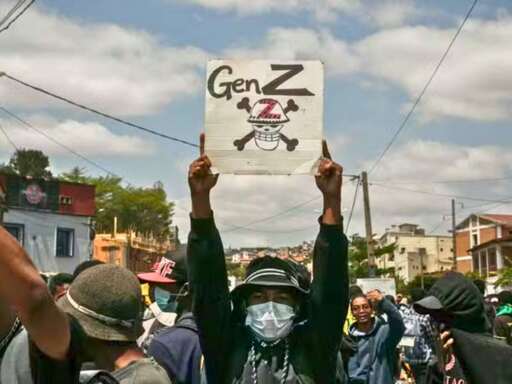Beginning on Thursday 25 September, Gen-Z-led protests against repeated water and power outages began to sweep Madagascar. By Monday, president Andry Rajoelina had announced that he would dissolve his government. However, the protesters were not placated, and yesterday thousands took to the streets once again.
‘Acts of destabilisation’
The protests began in Antananarivo, the island nation’s capital city. Since then, eight other cities in Madagascar saw demonstrations involving thousands of people. They were protesting power cuts that frequently left homes and workplaces without power for 12 hours a day.
Police fired rubber bullets and tear gas into the crowds, killing five on the first day. The UN also reported that the officers beat the protesters, and some even used live ammunition. In his earliest comments on the matter, president Rajoelina characterised the demonstrations as “acts of destabilisation in the form of a coup d’état”.
Authorities enforced an overnight curfew after the houses of three parliamentarians were set on fire, along with reports of looting by gangs unaffiliated with the protestors. The curfew took effect in Antananarivo on Thursday, and in seven other cities on Friday night. On 26 September, Rajoelina sacked his chief energy minister in an attempt to calm the protesters’ fury.
However, on Monday, thousands took to the streets once more. The young demonstrators demanded the resignations of the president and his government.
‘We are protesting for our country’
UN human rights commissioner Volker Türk expressed shock at the violence perpetrated by the security forces in Madagascar. By Monday, 22 people had been killed and over 100 injured. Türk stated in a press release:
I urge the security forces to desist from the use of unnecessary and disproportionate force and to immediately release all arbitrarily detained protesters. International human rights law is particularly strict on the use of firearms; they can only be used by law enforcement officers when strictly necessary to protect life or prevent serious injury from an imminent threat.
On Monday night, Rajoelina appeared on state television to announce the dissolution of his government. He expressed sympathy to the families of those killed by the police, and stated:
We acknowledge and apologise if members of the government have not carried out the tasks assigned to them.
I understand the anger, the sadness, and the difficulties caused by power cuts and water supply problems. I heard the call, I felt the suffering, I understood the impact on daily life.
Crucially, however, the president himself did not resign. As such, the protesters took to the streets again in their thousands yesterday. One Gen-Z demonstrator told Africanews:
Even if he fired the members of the government, the government did nothing to us. He is the one at the head of the country, not the government — he should go, and everything will be fine in the country.
We’re not afraid, even if he puts us in prison, even if he kills us — we are protesting for our country.
Gen-Z rising in Madagascar
The protestors held banners bearing slogans like “We don’t want trouble, we just want our rights” and, simply, “Gen-Z”.
Madagascar’s current ministers will continue in their roles on an interim basis until the formation of a new government. Parliament will receive applications for the new prime minister over the coming day. Notably, the prime minister is a separate role from the president in the Malagasy system, similar to the parliament of France, which previously colonised the African island.
Rajoelina has also expressed a desire to hold talks with the young protest leaders. The president came to power in 2009 following a political crisis and military coup. At the time, he was the youngest head of any world government, heading the Young Malagasies Determined party.
The protests in Madagascar join similar, mostly youth-fronted, uprisings in Morocco, Kenya, Nepal and elsewhere as Gen-Z rises in rejection of the old politics and makes its own mark upon the world stage.
Featured image via the Canary
From Canary via this RSS feed


